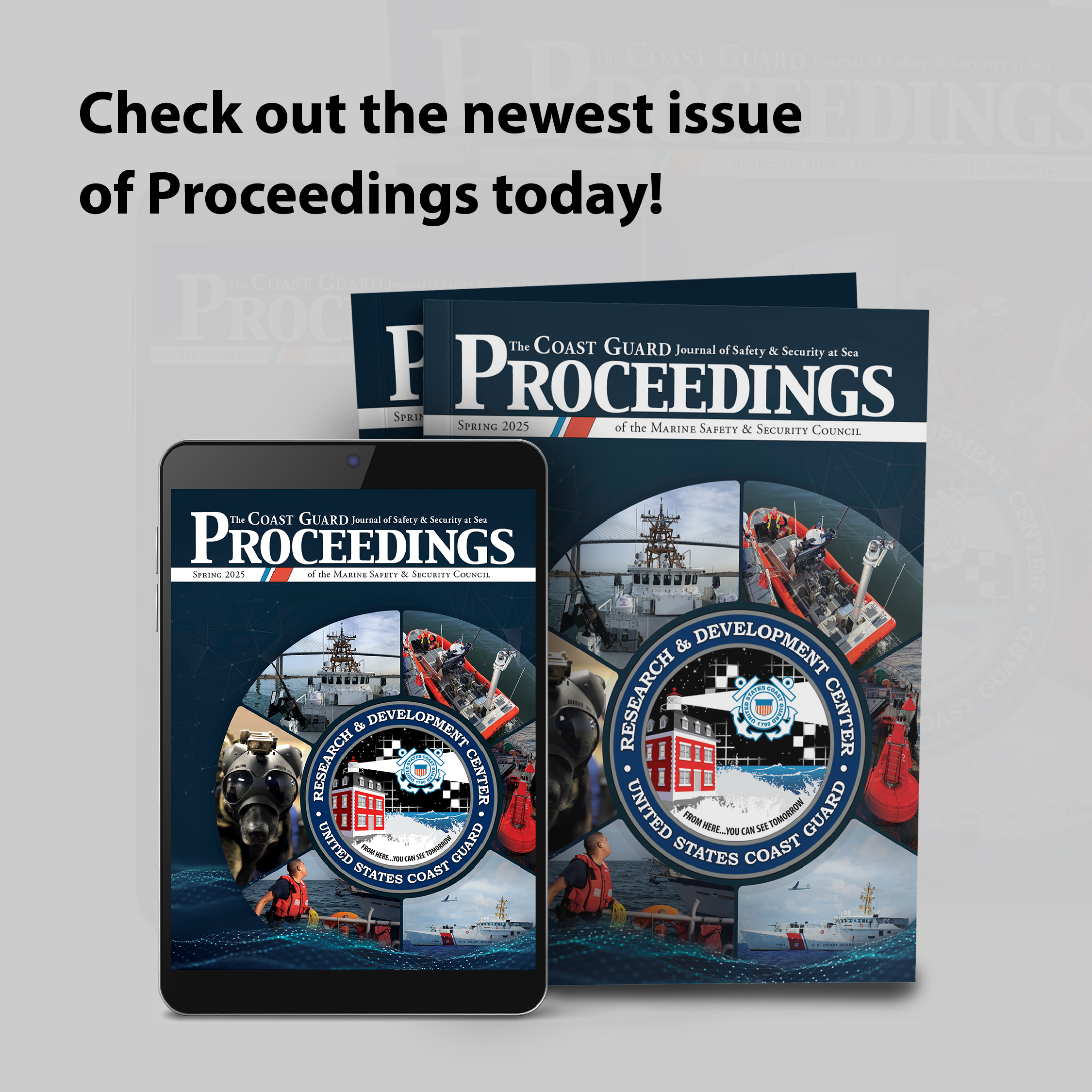
The Spring 2025 issue of Proceedings honors over five decades of innovation at the U.S. Coast Guard Research and Development Center. Explore how the RDC's legacy of problem-solving and partnership continues to shape the future of Coast Guard missions.
The Coast Guard Research and Development Center’s (RDC) importance to the successful execution of all 11 Coast Guard missions cannot be understated. When I drafted my Commander’s Intent, I had three primary focuses, one of which was, “Mission: We will strengthen operational readiness while delivering mission excellence.” Within this guiding principle, I reflected on the RDC, which I consider a center of gravity for the strategic, operational, and tactical levels of research for the service. As that center of gravity, we will innovate in concepts and approaches to operations and leverage advancement in technology and research for greater operational effect.
It is through dedicated, academically rich and rigorous research that the RDC impacts a wide range of missions the Atlantic Area, the subordinate districts and sectors, as well as their associated commands, are involved in. From illegal, unreported, and unregulated fishing, human and narcotics smuggling, and search and rescue to polar operations, environmental response, and all facets of the Marine Transportation System, the need for the RDC’s research discipline has never been greater. I am amazed that this small command does so much that impacts those of us in the field.
Our adversaries are constantly changing tactics and the need for durable maritime domain awareness and the application of autonomous capabilities have never been more important, especially when it allows decision-makers to carefully select assets. The RDC’s work in ArcGIS, their autonomy sprints, their work with communications advances, such as Starlink, and search and rescue tools like i911 make a difference.
The RDC must continue to work with the operators and Coast Guard Headquarters programs to apply science and research to address these issues. I have been impressed with the number of partners, inside the government and out, including academia and industry. The Evergreen events the RDC has sponsored with the Coast Guard’s Office of Emerging Policy have benefitted my command, and the knowledge products generated are useful in developing operational orders and future strategies. Having RDC talent participate in our chartered work groups adds to the perspective and the courses of action considered.
The operational commanders need to engage in a continuous manner with the RDC to ensure two-way communication, which is why I assigned liaisons to work directly with their staffs. If the RDC wants to conduct experimentation in my area of responsibility, my staff will support them, and we will work to ensure the district, sector, cutter, or aircraft are true partners. I know my counterpart on the West Coast, VADM Andrew Tiongson, feels equally strongly about the RDC’s value.
We live in a constantly changing world. Having the RDC and Coast Guard research partners look to the future, conduct priority research, and test technology that supports my command and the service is a strategic imperative. As you read this edition, I hope you gain insight into the various areas the RDC is involved in and the impact it makes.

 To explore this issue and learn more about the RDC’s groundbreaking work, you can read the full digital edition of the Spring 2025 Proceedings online at:
To explore this issue and learn more about the RDC’s groundbreaking work, you can read the full digital edition of the Spring 2025 Proceedings online at:
###